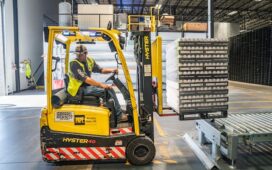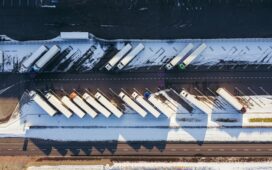Modern infrastructure relies on pipeline construction as an essential foundation which both supports economic activities and links different communities. Modern life depends extensively on different types of pipelines which transport oil, gas, water and multiple vital resources therefore the quality levels of construction services play an essential role. The industry demands top-notch safety measures together with operational efficiency so that any minor quality weakness results in substantial consequences. Understanding pipeline project complexities leads to acknowledging how quality matters both for present-day achievements and future project durability. Those working in this dynamic field should focus on maintaining high standards because it leads to their professional success regardless of their project management role or watching operations behind the scenes.
The Impact of Poor Quality in Pipeline Construction
Defects during pipeline construction work will produce disastrous consequences. Severe environmental damage such as oil spills together with water source contamination arises from these pipeline failures. The incidents damage both the ecosystems and the local populations who depend on clean water as a source of survival.
Financial repercussions are equally significant. Organizations face substantial legal penalties along with reputation damage because of which resources get depleted. The expense needed to repair faulty built structures surpasses every monetary advantage obtained through budget reduction during the construction process.
Shorter operational duration becomes the consequence of building pipelines with inadequate quality standards. These types of pipelines need more regular maintenance or demand complete replacement before their well-built alternatives require replacement. The ongoing process of deterioration leads to wasted financial resources and causes service disruption.
Leaks from poor pipeline construction emit dangers that threaten both workers performing their duties and anybody in their vicinity. Leadership standards in pipeline construction services simultaneously defend human safety and the overall stability of essential infrastructure in different industries.
The Benefits of Prioritizing Quality in Pipeline Projects
The strategic emphasis on quality during pipe installation work contributes to better safety standards. Through employing premium materials coupled with precise processes high-quality infrastructure decreases the probability of system breaches that safeguard personnel alongside the surrounding population.
The emphasis on quality results in less project delays when建筑流水. Quality foundations lower the need for additional repair work or costly reinstallation of components during future operations.
Quality also boosts operational efficiency. The smooth functioning of pipelines improves because of proper design which delivers stable flow rates together with reduced power usage.
Top-quality practices provide financial savings which together with improved reputation represent their dual benefits. Businesses dedicated to excellence become attractive to their clients.
Organizations that give quality priority establish innovative performance in their industry. Teams who work on best practices find innovative approaches and modern technologies which will transform pipeline projects in future developments.
Implementing Quality Assurance Measures
Project integrity depends heavily on quality assurance measures during pipeline construction services. Planning and standard evaluation takes priority at the beginning of all work before construction activities start.
The construction period requires scheduled inspections which help teams identify potential problems before they grow worse. The early identification of problems helps teams save time and reduce costs which would otherwise occur from uncontrolled issues over time.
When personnel receive training in best practices they create an environment that promotes quality work on the site. The understanding of work responsibilities by workers results in decreased mistakes along with enhanced results in their work.
The implementation of advanced technology systems promotes superior quality control operations in projects. The combination of drones and 3D modeling enables operators to gather real-time structural information about pipelines which enables immediate corrective measures when needed.
A project’s stakeholders benefit from clear communication because it allows everyone to stay aligned with their quality objectives across the project duration. Organized interaction between teams results in fewer conflicts while enhancing operational efficiency which produces successful results in each section of the pipeline project.
Case Studies Successful Projects with Emphasis on Quality
An outstanding case example is the Keystone Pipeline system. The massive project initiated quality excellence with strict industry standards that required every phase to adhere to the requirements. The implementation of thorough inspection and testing methods reduced the possibility of pipeline leaks and failures in both operations.
A different notable case looks at the Transcontinental Gas Pipeline. Metal and the Transcontinental Gas Pipeline demonstrated through technological advancements in their supervisory and upkeep activities that dedicated quality focus leads to superior reliability and safety performance.
The successful achievement of high-quality outcomes depended heavily on thorough stakeholder cooperation in each system. Through their commitment to excellence these pipelines reached operational efficiency which made communities trust their presence.
Investing in rigorous quality management with proper resources leads to exceptional outcomes which safely protect public welfare according to these examples. The implementation of quality-focused pipeline building techniques enables sustainable power solutions which deliver advantages to all parties involved.
Future of the Pipeline Industry and the Role of Quality
The pipeline construction sector faces imminent changes in its structural development. Future business operations will need more stringent quality assurance processes because environmental regulations strengthen while technology improves. Companies focused on achieving top standards will differentiate themselves among market competitors.
The rising regulatory oversight and stakeholder monitoring results in sustained emphasis on building safety together with durable environmental protection practices. The focus in future projects will shift toward development of durable materials utilizing innovative techniques which maintain high quality standards.
Modern technological developments consisting of artificial intelligence together with machine learning systems offer significant potential for tracking construction operations. The implementation of real-time data analytics detects potential problems early on so that quality standards remain compliant throughout an entire project duration.
Public awareness regarding environmental impact will grow which will result in client demand for clear construction practice transparency. The organizations that promise superior quality standards beyond basic requirements will establish new industry standards in addition to fulfilling client expectations.
Future business success demands quality investment through compliance measures which can serve as opportunities for industry growth. Organizations which detect this upcoming change early will take the leadership position to define successful pipeline construction services through superior quality.














